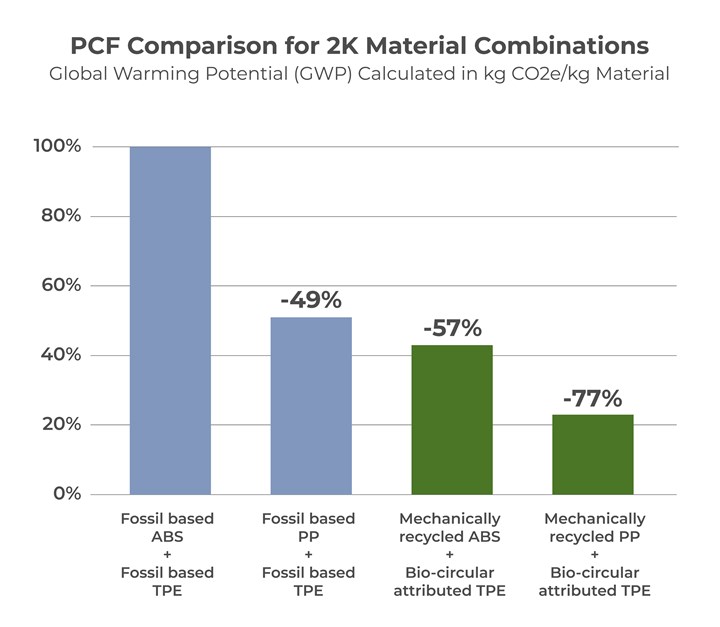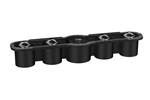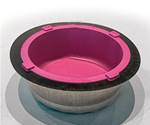More Sustainable Two-Component Overmolding
Swedish compounders HEXPOL TPE AB and Polykemi AB have collaborated on a 2K sustainable development project for consumer products.
HEXPOL TPE and Polykemi have collaborated on material combinations for multicomponent injection molding based on the resins’ properties and sustainability qualities. The companies’ goals included demonstrating the possibilities in reducing the product carbon footprint, while increasing recyclability and optimizing adhesion.
The compounders documented the cradle-to-gate Product Carbon Footprints (PCF) and Global Warming Potential (GWP) per kg of material. The PCF data shows that switching from a combination using fossil fuel based ABS from Polykemi, that is overmolded with a fossil fuel based TPE from HEXPOL TPE, to a recycled PP and TPE with bio-circular attributed content, can result in a 77% reduction in carbon dioxide emissions. The companies say this combination can also provide end-of-life and recycling compatibility advantages.
Combinations using mechanically recycled ABS with bio-circular attributed TPE were also tested, resulting in a 57% reduction in carbon dioxide emissions compared to the fully fossil-based equivalents. The TPE has bio-circular attributed content via the mass balance principle from 2nd generation feedstocks.

HEXPOL TPE and Polykemi have collaborated to determine maximum carbon reduction possibilities for overmolding PP with TPE.
Photo Credit: HEXPOL TPE and Polykemi
Related Content
-
Prices for PE, PS, PVC, PET Trending Flat; PP to Drop
Despite price increase nominations going into second quarter, it appeared there was potential for generally flat pricing with the exception of a major downward correction for PP.
-
Part 3: The World of Molding Thermosets
Thermosets were the prevalent material in the early history of plastics, but were soon overtaken by thermoplastics in injection molding applications.
-
Prices Up for PE, ABS, PC, Nylons 6 and 66; Down for PP, PET and Flat for PS and PVC
Second quarter started with price hikes in PE and the four volume engineering resins, but relatively stable pricing was largely expected by the quarter’s end.












